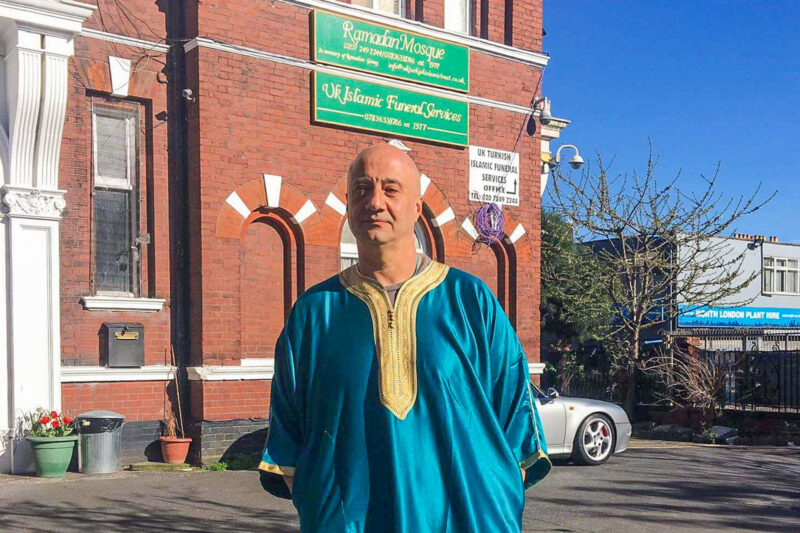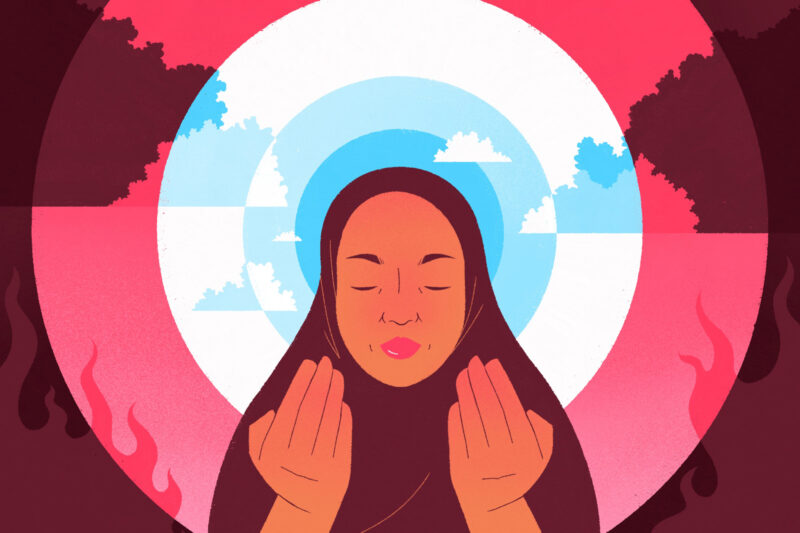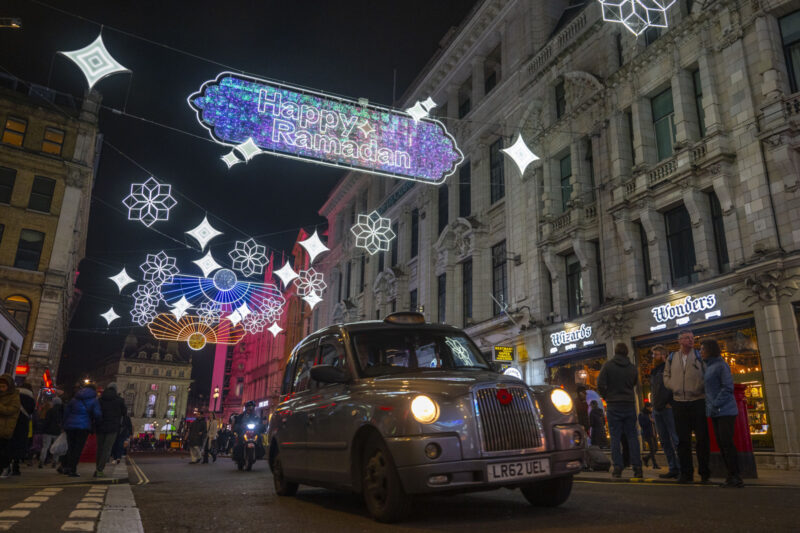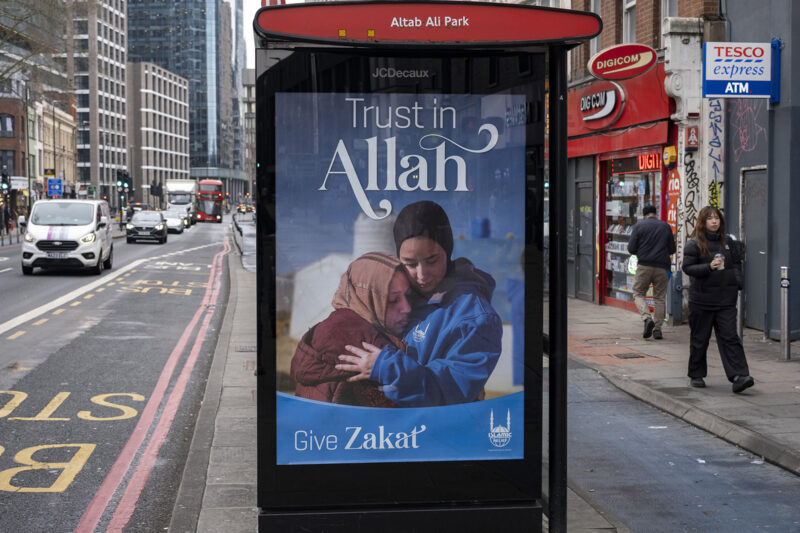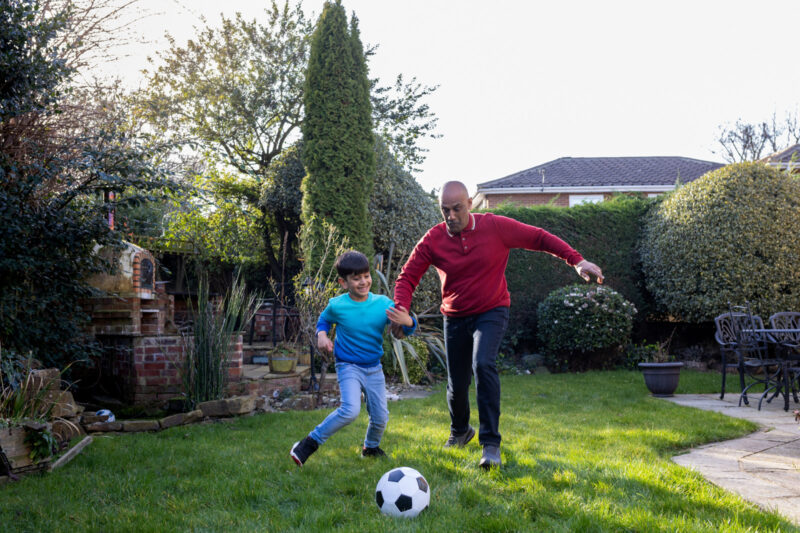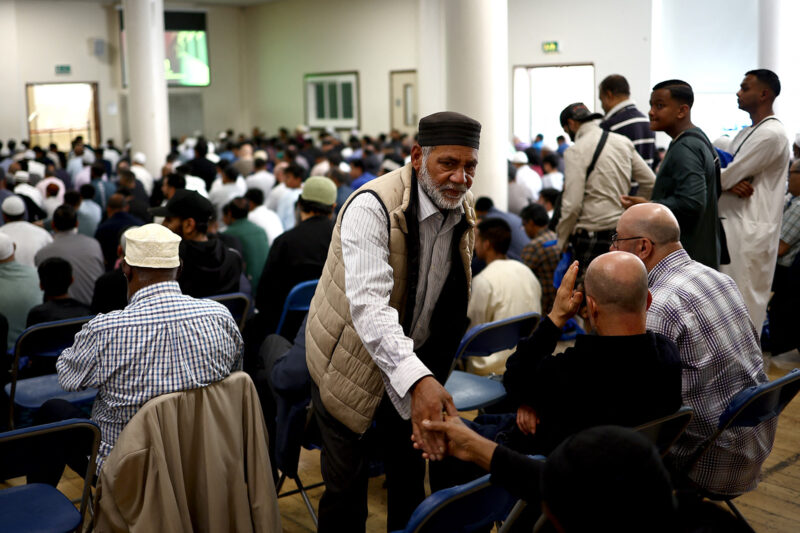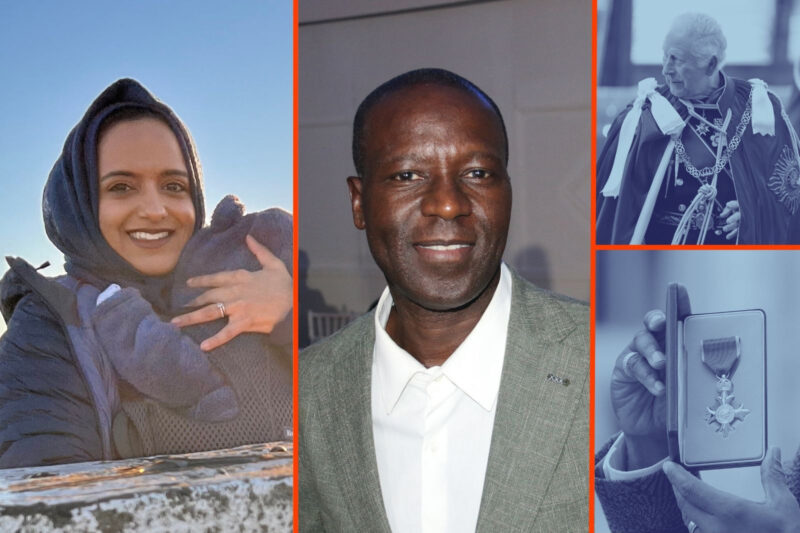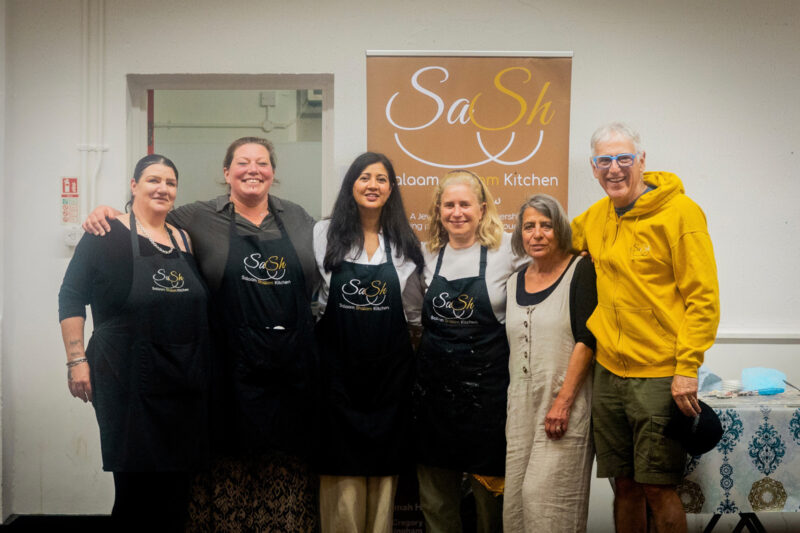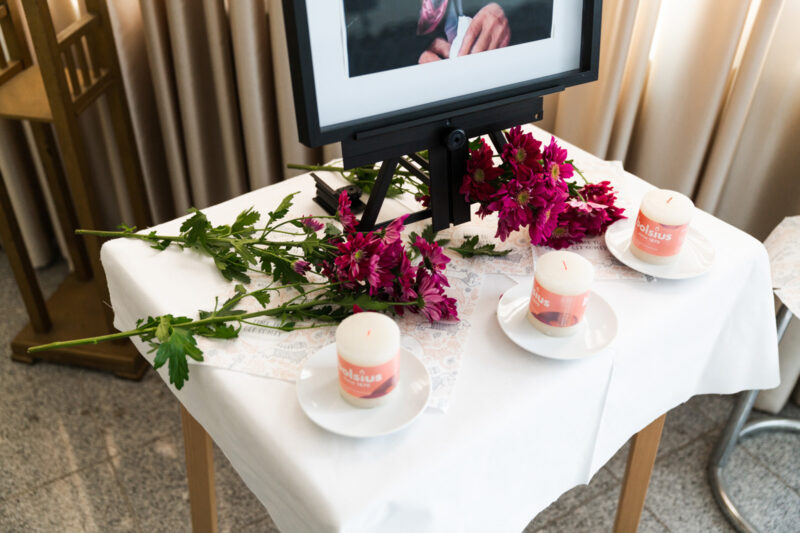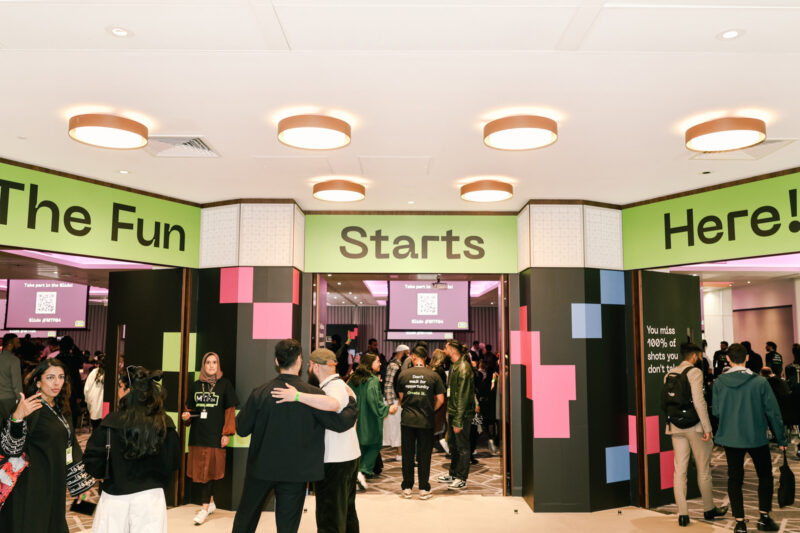Ramadan amid the rubble
Two months on from the earthquake that destroyed large parts of Turkey and Syria, families in Gaziantep try to celebrate despite the destruction
–
On a quiet Saturday evening, the sun is beginning its final descent on Gaziantep. There’s a slight chill in this south-central Turkish city as a family gathers outside to put the finishing touches to their iftar.
For the past hour, Yasemin Sanbur, 51, has been bent over an old wooden table, making a meal from bunches of fresh green herbs and spring onions, bright red peppers and a cutting board full of warm boiled eggs. As the maghrib prayer sounds from the mosque down the road, the mother of two grown-up children spreads out a tablecloth, dishes up the egg salad, sets out a bottle of salty, creamy ayran and begins to ladle hot potato and yoghurt soup — a Gaziantep speciality — into bowls.
Meanwhile Naci Sanbur, Yasemin’s 67-year old husband, works with his sister, Nuriye, to get the lights strung in the trees above to work. A man speeds up on a motorised scooter to drop off fresh pitta wrapped in brown paper. He drives off as quickly as he arrived and the three family members fall into their places at the table to break their fast.
The scene might sound familiar to the millions of Muslims around the world observing Ramadan this month. But for the Sanbur family, it’s not the celebration they had planned.
On 6 February, a 7.8 magnitude earthquake rocked this region of Turkey and northern Syria, killing more than 50,000 people and displacing millions more. It shook the Sanburs awake in the early morning hours and quickly reduced their home to rubble.
“We swayed for three minutes in the earthquake. All these stones were coming down on our heads. We had to jump down from this height,” Naci explained, gesturing to a dropoff about two metres high. “Myself, my wife and my son barely got outside. We were OK, and that’s all that mattered.”
All that remains of the family home is a pile of bricks and a still-intact back walled courtyard, where the Sanburs keep ducks and a half dozen chickens, whose eggs Naci had gathered for their simple meal.
The family now lives in two tents which they erected after the earthquake. One is for sleeping, the other for preparing meals. They have a few small refrigerators to store fresh food, powered by electricity from a neighbour’s home.
In the past, Naci would buy a whole sheep or goat for Ramadan, slaughter and butcher it himself, and store the meat for iftars throughout the month. He had begun preparing this year’s meals before the earthquake, but his supplies went bad after the disaster. Now, fresh meat is a luxury. Not only is it more difficult to store — runaway inflation in Turkey, which peaked at an annual rate of 85.5% in October 2022, has made it much more expensive.
Many affected by the earthquake have also had their livelihoods destroyed. Farmers’ fields have been decimated, factories have collapsed and workforces have been displaced by the disaster
“We were much better off in the old Ramadans because we could buy everything easily and as much as we wanted,” Naci said.
“I used to invite my relatives and neighbours. They would eat and drink and I felt proud. But if I invite anyone, I have no place to host now. If you have a guest overnight, there is no bed to offer. I sometimes feel depressed.”
Not only is there less food on the table this year, the earthquake has also stolen a large part of the Sanbur’s sense of community. Nearly all of their neighbours left after the quake. The woman next door stayed for a while, but then decided to move in with her son in the capital, Ankara, about 700 kilometres northwest of Gaziantep. Naci’s own family haven’t visited since the disaster.
“My dining table used to be full and big; I used to be proud. Now, unfortunately, nothing is left,” he said, scrolling through photos on his phone showing a room crowded with smiling faces.
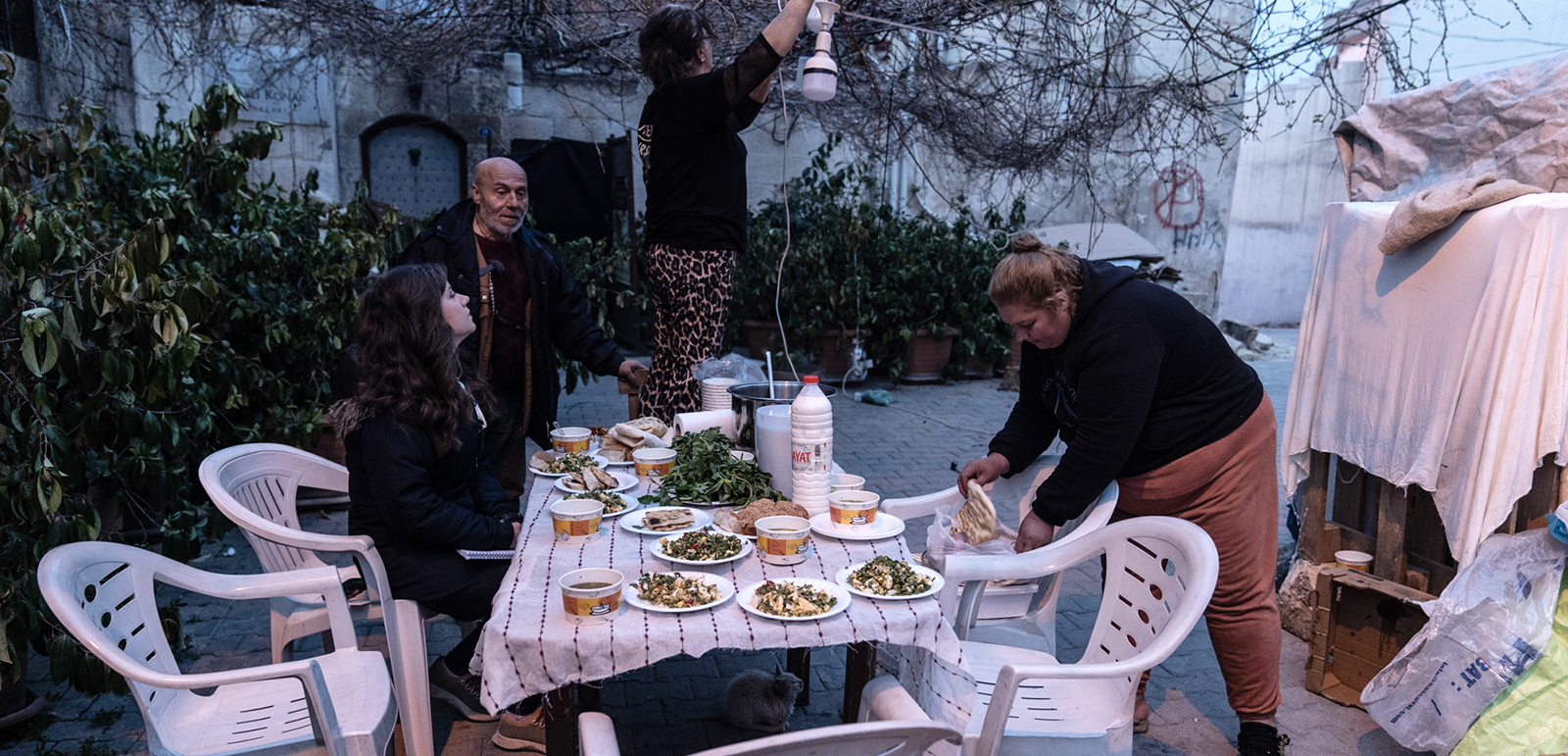
Yasemin listens to her husband telling stories of joyful past iftars with fresh meat, friends and family. Even passersby were invited to share the feast or a cup of Turkish tea afterwards.
“Now we are living in the worst conditions,” she said. “I really don’t have any hope.”
Many affected by the earthquake have also had their livelihoods destroyed. Farmers’ fields have been decimated, factories have collapsed and workforces have been displaced by the disaster. Naci is grateful that he’s still able to earn money, driving taxis and buses and working as a courier. He leaves every morning at 5am, takes a break in the middle of the day, then drives again from 9pm to midnight.
“Thank goodness we are strong and alive,” he said. “If you are dead, everything is meaningless.”
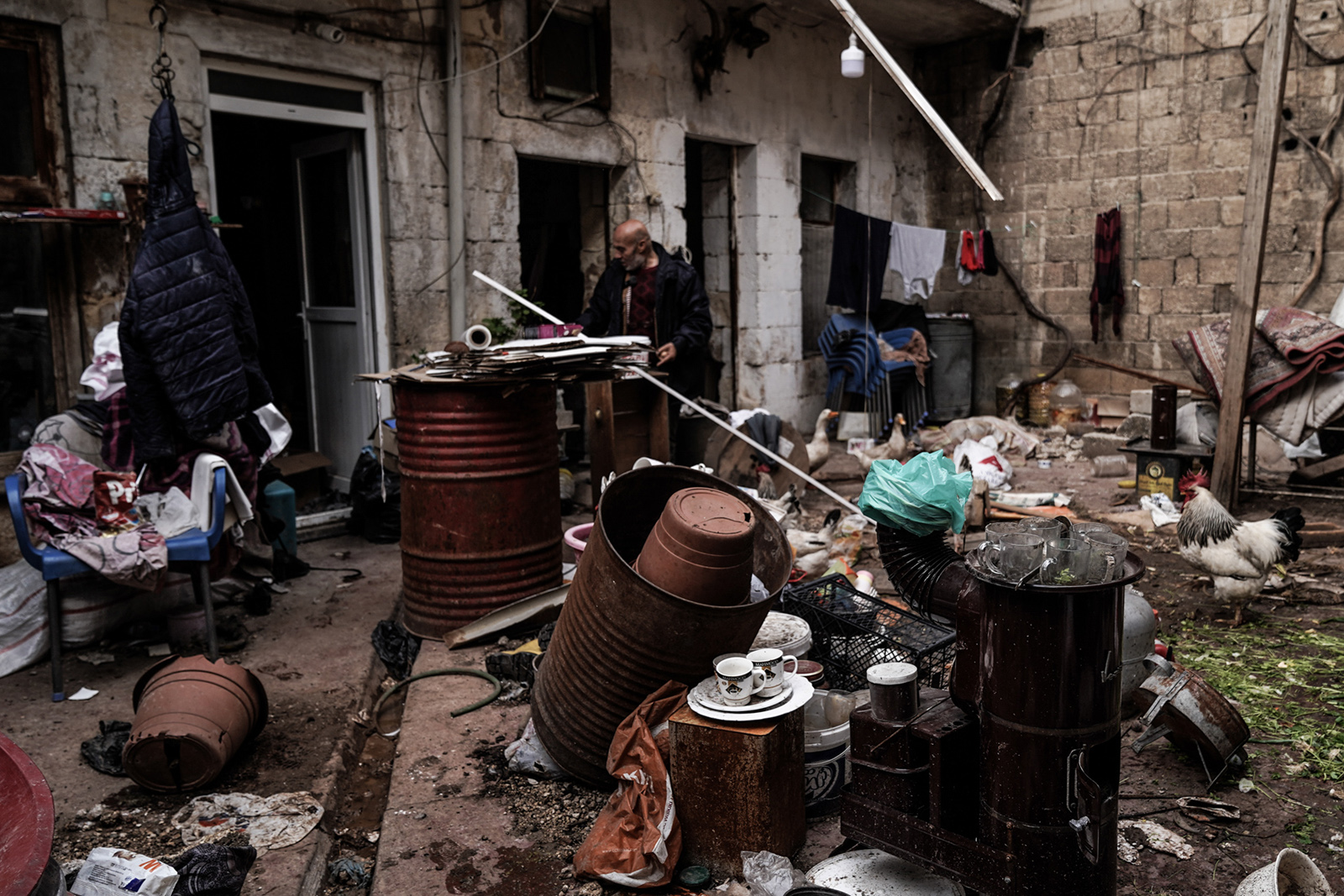
In downtown Gaziantep, and at four other locations across the city and wider province, the municipality has set up tents where it serves 20,000 free iftar meals every evening. Throughout the holy month, it also sends out a further 200,000 boxes of food so people can make their own iftars.
A few blocks away from the Sanbur family in Democracy Square, long lines of hungry people begin to form every evening before sunset. More than a third of the population in the 11 provinces affected by the earthquake rely on agriculture for their livelihoods, and the disaster has left them unable to afford basic necessities.
Most of those queueing don’t want to explain why they are there, but the few who are comfortable with their names being published explain that, just like the Sanburs, they came to the public iftar tables for a sense of community.
“Eating together is doing a good deed in Islam,” a man named Mehmet says, looking at his tray of potatoes with yoghurt, bulgur pilaf, salad, fruit and pitta. “The government and municipalities are providing meals like this so that everybody can eat. If a person can’t cook at home, they come here.”
At another table under the bright yellow tents, a woman named Döne explained that she and her husband, a shoemaker, have struggled financially since the earthquake. The disaster has also made their kids fearful; the parents hope that their children’s coming to eat at the communal tables will bring them some comfort.
“We came here occasionally before the earthquake for the kids,” she said. “We’re here now because they like it here, and we want them to overcome the fear of the earthquake.”
Back at the Sanburs’ outdoor iftar, Yasemin clears the empty plates, cups and leftover scraps. But instead of bringing out a plate of baklava, another Gaziantep speciality, a birthday cake for Yasemin emerges from the kitchen tent. Smiles break out on everyone’s faces.
Even in the shadow of ruins, there is room for celebration. Everyone pokes sparkler candles into the cake’s chocolate frosting, and Yasemin pauses to admire it — perhaps to make a wish — before she blows them out.
Naci, the optimist of the family, sits back, enjoying the scene. He has not not given up.
“I am hopeful about my life,” he said. “I am grateful that I live. Driving, portership, whatever, I will do something to make a living. I have my feet, my arms; my eyes work. Why would I be hungry? It is not important where you live, it is important that you can feed yourself and your family.”
 Newsletter
Newsletter


